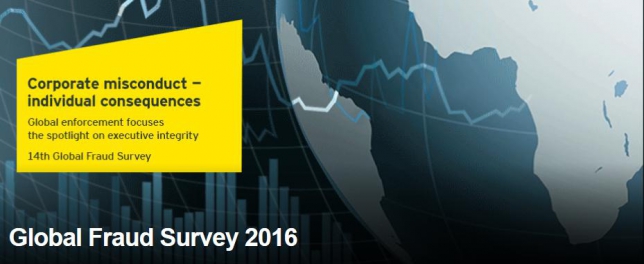AmCham is a place to meet representatives of other industries and understand the business environment.
Signe Velina, Market Access Manager Latvia of Johnson & Johnson

«In spite of major efforts to reduce corruption in Latvia over the course of many years, we see that Latvia's corruption perception level is still far from European western nations. The survey points to a shocking fact that a confident majority of Latvian professionals admit that corruption is a major problem in the private sector. Such a major presence of corruption creates a serious burden for economic development. This is because corruption reduces economy's efficiency. Without reducing corruption, Latvia is unlikely to reach western nations' development levels,» comments EY partner in Baltics Diana Krisjane.
Latvia's indexes are close to indexes of Central and Eastern Europe. Survey data shows that 70% respondents in Slovakia, 66% in Hungary, 60% in Croatia, 54% in Czech Republic and 48% in Serbia all mentioned widespread corruption levels in their home country. The worst indexes in EY survey were recorded in Ukraine, where 88% of respondents mentioned corruption is widespread among government-level specialists.
EY survey shows that Latvia's corruption perception level is multiple times larger than the level of economically developed European member states. For example, only 4% of Swedish professionals view corruption as widespread in their country, followed by Germany and Holland with 6% each; Belgium, Ireland and Switzerland with 8% and Austria with 10%. Corruption levels are higher in Norway (16%), France (18%) and UK (28%). Corruption levels in Spain and Portugal are on the same level as Eastern European countries (50%).
«The survey also shows a number of positive trends. For example, three out of four survey participants note their company or organization has an anti-corruption policy. Only 15% of professionals believe strict compliance with anti-corruption policy and procedures negatively impacts their organization's competitiveness,» said EY representative Liene Dobele.
76% of respondents believe compliance with ethics standards helps businesses and organizations become more successful.
«Results of the survey show that Latvian professionals' opinion towards different corruption and fraud prevention processes is constructive and welcoming. This is good ground to help reduce corruption and fraud. It is necessary to continue realizing internal policy and other procedures into practice. We see that organizations actively perform internal audits and external financial revisions. They have also introduced the duty for employees to report conflicts of interests. However, in 30% of all cases employees are punished for violations of internal corruption prevention measures,» explains Krisjane.
Survey data shows that financial audit is the most popular corruption prevention tool in Latvia. It is used by 95% of respondents. Other popular measures include internal control (86%) and internal audit (81%). Trust hotlines are not yet popular in Latvia to be an effective mechanism - they are only available to 35% of respondents' organizations.
Organizations have to perform regular corruption and fraud risk analysis, enhance internal control systems and actively use internal audit functions, Krisjane recommends.

We re-affirm our commitment to the values that AmCham stands for and that we share.
Kārlis Danēvičs, Board member, Head of Credits and Risk at SEB Banka